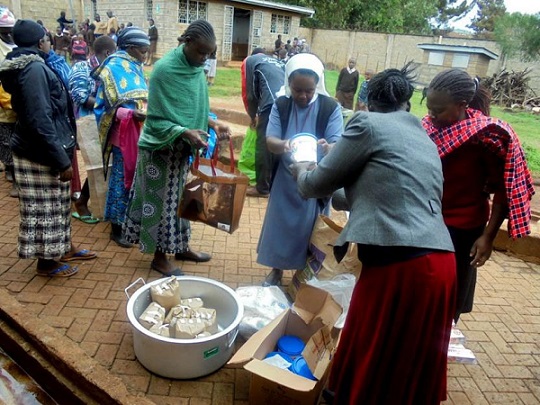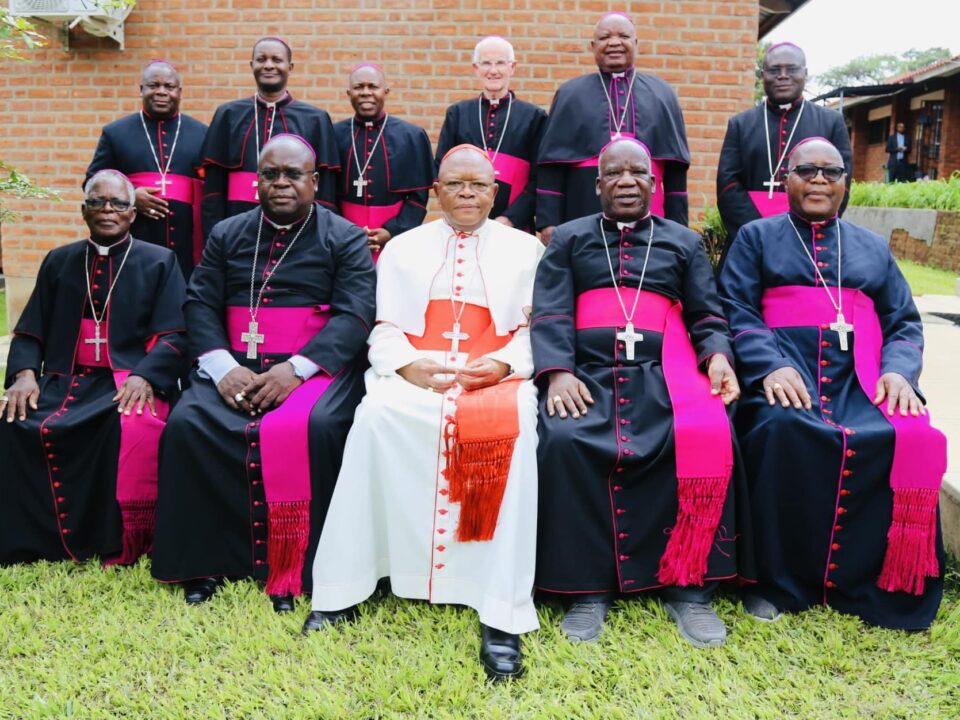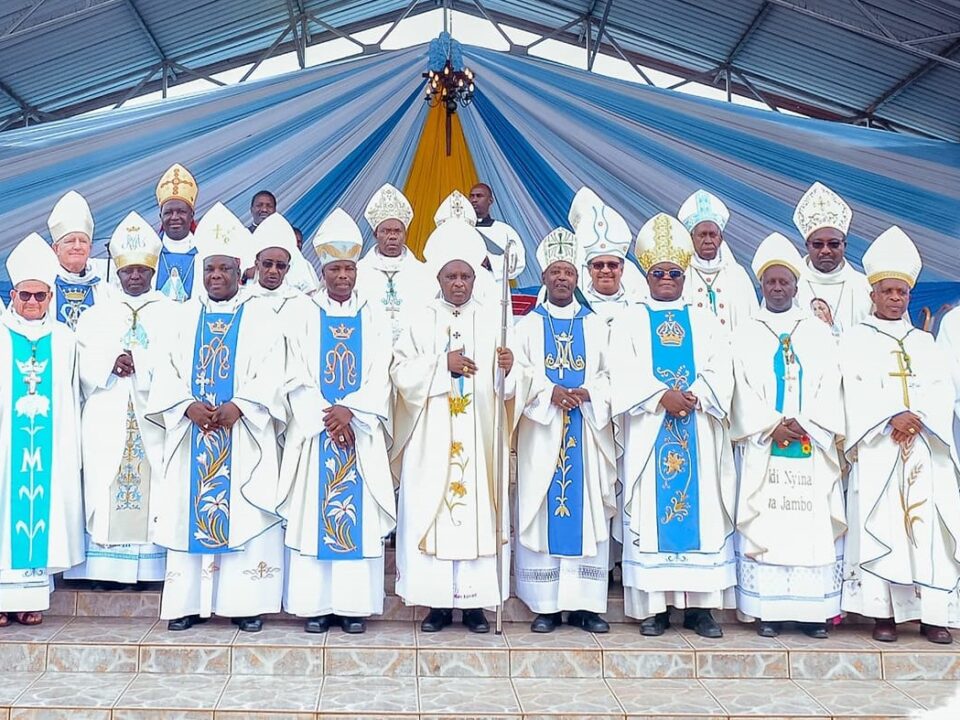- Contact us on - Contactez-nous sur - Contacte-nos em
- +233-30-277-8867/8
- +233-30-277-2548
- secam@secam.org
It’s All about Helping Women Survive and Succeed: Nuns in Kenya-based Media Testify
It’s All about Helping Women Survive and Succeed: Nuns in Kenya-based Media Testify
Global Sisters Report (GSR) || By the Life Panelists || 30 July 2018
 Christine Nasimiyu Masivo is a Missionary Sister of the Precious Blood. After formation studies in Tanzania and Canada, she worked at radio stations in Kenya and Uganda as a reporter, editor, news director, producer and news anchor. She is now with Capuchin TV and pursuing graduate studies in communication.
Christine Nasimiyu Masivo is a Missionary Sister of the Precious Blood. After formation studies in Tanzania and Canada, she worked at radio stations in Kenya and Uganda as a reporter, editor, news director, producer and news anchor. She is now with Capuchin TV and pursuing graduate studies in communication.
Many women in the slums of Kawangware in Nairobi, Kenya, are especially vulnerable because of their terrible life situations. Poverty and violence are the most common issues.
These women are single mothers or the wives of drunkards or husbands who do not care about their families. Some of the men were violently abusive toward them or drank so much they could not provide for their families.
The women who care about their children’s education struggle to keep them in school. This has led some of them to become involved in unhealthy practices that are very risky to their health, such as drugs and prostitution, for the sake of keeping their children in school.
Sometimes, the women seem not to know what to do because of the immense rate of poverty and the high cost of living in the country.
The Missionary Sisters of the Precious Blood live in this area and have been of great help and support to these women. For example, Sr. Anne Grace leads a team that tries to bring the women together to help them help themselves and live a decent life.
The concept of microfinance was introduced to these women, and they adopted it gratefully. They give 50 Kenyan shillings monthly to the group pot to become a member, then they are allowed to take out small loans that enable them to start small businesses.
A number of them have been faithful to this project and have started small businesses for selling fruit and vegetables. Now, they can provide food for the family and school supplies for their kids. We sisters provide the children with school fees and other educational expenses, which are very hard for them to meet. The Missionary Sisters of the Precious Blood in Kenya took this initiative because we thought helping the women was key to solving many problems.
Because of the abuse they suffered from their husbands, the women would end up neglecting their children, who would run away to the streets of Nairobi and eventually become victims of drug abuse and prostitution. By helping the women, we prevent a variety of social problems.
Adelaide Ndilu is a member of the Sisters of the Immaculate Heart of Mary in Kenya. After careers as teacher, administrator and secretary, she studied mass communication. She now produces stories on church and justice topics for Radio Waumini, a Nairobi Catholic radio station.
Sometimes, I see desperation on people’s faces. In Kenya today, the talk all over the media is about the importation of sugar contaminated with mercury and copper, very harmful to humans. In early June, it was the corruption of the mighty and powerful in government, who took billions of Kenya shillings, leading to more poverty.
In such scenarios, women suffer most. According to the Kenya Integrated Household Budget Survey of 2005-2006, poverty among women is higher in both rural (50 percent) and urban (46 percent) areas.
That is why the mention of Immaculate Heart of Mary Sisters Celine and Marcel makes the women of Jasho D Block in the outskirts of Eldoret, Kenya, chuckle, nod and affirm, “hawa ni masister wetu” (“these are our sisters”) because the sisters came to their assistance in their time of need.
The women once led happy and contented lives as employees of the East African Tanning Extract Company in Eldoret until its closure in 2003. At once, their hopes were dashed, and they could do nothing but sit in small groups along the dusty road, waiting to be employed as casual workers for a day’s wage. Yet not even that was assured.
This is how Sisters Celine and Marcel found them: As the sisters walked from one homestead to another, the women all had one cry — no food, no school fees, alcoholic husbands, teenage pregnancies leading to early marriages and school dropouts, and a whole litany of suffering.
The sisters did not promise the women that bread would fall like manna from heaven. No! They promised them hard work and enrolled six of them in a six-month training course in knitting, tailoring, making baskets, and the like. The six returned and started training the others.
The sisters organized seminars for the women on hygiene and the importance of educating their children, which had never been a priority. The women now have a garden where they plant vegetables, and thanks to microfinancing, now they can boast of owning bank accounts.
The sisters also approached the county community and government leaders about getting the children back to school. The children, previously infected by jiggers because of unhygienic conditions, are now healed and able to go to school.
This is an example of how our congregation responds to women’s needs — through our own women like Sisters Celine and Marcel!
Source: Global Sisters Report…




